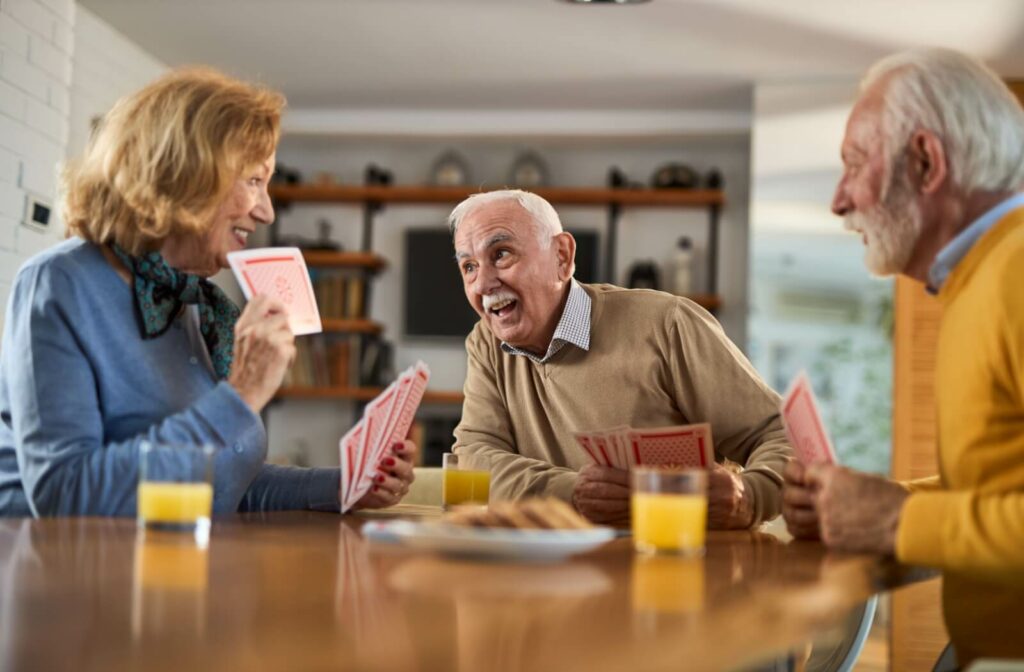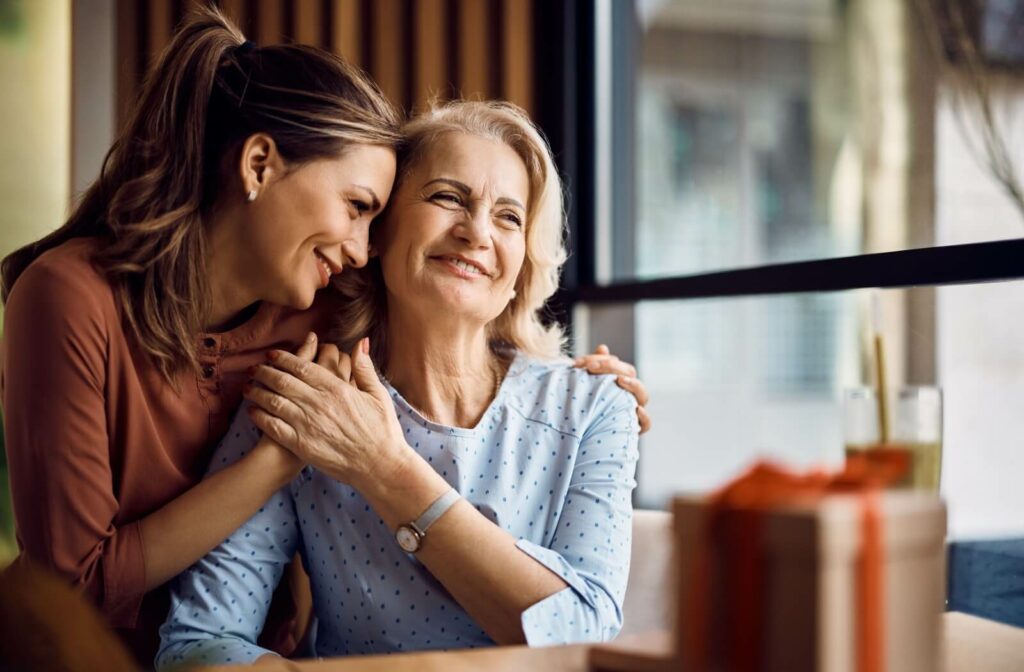Key Takeaways
- Safety First: Assess your loved one’s physical and cognitive abilities—like mobility, memory, and daily task management—before deciding if they can be left alone.
- Warning Signs: Memory loss, difficulty with daily activities, and increased fall risk signal the need for added supervision or support.
- Emotional Well-Being Matters: Isolation can lead to depression, anxiety, and cognitive decline—regular social engagement is essential.
- Personal Care Communities as a Solution: These communities offer 24/7 supervision, personalized care, and enriching activities that promote safety, health, and connection.
- Next Steps: Consider an evaluation to determine if personal care is right for your loved one to ensure their ongoing well-being and peace of mind for the whole family.
Caring for elderly loved ones presents a unique set of challenges. With age often comes a host of physical and cognitive changes that can affect an individual’s ability to live independently.
Deciding whether it’s okay to leave an older loved one alone can be tough, and the answer really depends on their individual needs and abilities.
While some seniors may manage fine independently, others may face physical or cognitive challenges that make it unsafe. It’s important to carefully assess your loved one’s overall health, daily habits, and home environment before making that decision.
Ultimately, the key is ensuring their safety and well-being, whether that means occasional check-ins or more constant supervision.
Understanding Physical & Cognitive Limitations
Before making any decisions about leaving an elderly person alone, it’s important to understand their physical and cognitive limitations.
Aging can lead to diminished eyesight, reduced mobility, and slower reflexes, all of which increase the risk of accidents at home.
Cognitive changes, such as memory loss or impaired judgment, can further complicate matters. To ensure your loved one’s safety, it’s important to thoroughly evaluate these factors and determine the level of supervision required.
Key Factors to Consider Before Leaving An Elderly Person Alone
- Consider their ability to perform daily tasks independently, such as cooking, bathing, and managing medications.
- Evaluate their living environment for potential hazards, like stairs or slippery surfaces.
- Assess their social connections—do they have friends or family nearby who can check in regularly?
Signs That an Elderly Person Shouldn’t Be Left Unattended
Declining Memory & Cognitive Function
One of the most significant signs that an older loved one shouldn’t be left alone is declining memory and cognitive function. Forgetfulness can lead to missed medications or leaving appliances on, posing serious risks.
If your loved one frequently forgets names, places, or events, it may be time to consider additional support to ensure their safety and well-being.
Mobility Issues & Fall Risks
Mobility issues are another critical factor to monitor. Difficulty walking, maintaining balance, or navigating stairs can significantly increase the risk of falls.
Falls are the leading cause of injury among seniors, and a fall while alone can have devastating consequences. Assess your loved one’s mobility regularly and consider using mobility aids or making home modifications to reduce these risks.
Difficulty Managing Daily Tasks
If your loved one struggles with managing daily tasks, this could indicate that they require more supervision.
Difficulty preparing meals, handling finances, or keeping track of appointments can lead to increased stress and potential hazards. Providing assistance or arranging for regular check-ins can help them manage these tasks more effectively.
The Emotional Impact of Isolation on Seniors

Loneliness and social isolation can have profound effects on seniors’ emotional and physical health. Studies show that prolonged isolation can lead to:
- Depression
- Anxiety
- Cognitive decline
Companionship plays a vital role in a senior’s well-being. Regular social interactions can boost mood, reduce feelings of loneliness, and provide mental stimulation.
Encourage your loved ones to participate in social activities or join local groups to maintain an active social life. Companionship doesn’t only come from people; a pet can also provide comfort and joy.
How Personal Care Communities Can Help
Personal care communities offer structured environments designed to meet the needs of seniors, providing a safe space where they can receive personalized care while engaging in various social activities.
This strikes a pleasing balance between maintaining independence and receiving essential support from trained staff.
In personal care communities like Fieldstone at Chester Springs, residents can enjoy 24-hour supervision, ensuring their safety and security at all times. Many such communities provide access to medical care, with on-site healthcare professionals available to assist with medication management and routine check-ups.
Social Activities
Beyond providing essential care services, personal care communities are known for fostering a vibrant social setting.
Residents can participate in a wide range of activities, such as exercise classes, arts and crafts, and group outings, all of which help to promote social interaction and combat feelings of isolation.
This enriching environment not only enhances the quality of life for seniors, but also encourages them to build meaningful connections with their peers.
Ensuring the Safety & Well-Being of Older Loved Ones
When considering the kind of care that an aging loved one might need, personal care communities can be a valuable solution that prioritizes your loved one’s safety and well-being.
By evaluating their physical and cognitive abilities, you can determine whether personal care might meet your loved one’s needs.
Personal care communities offer supportive environments that provide both care and companionship, helping seniors maintain their independence while ensuring they receive the necessary assistance.
If you’re exploring options for your loved one, we invite you to learn more about Fieldstone at Chester Springs. Our dedicated team is here to help you find the right fit for your family’s needs and enhance the quality of life for your elderly loved ones. Contact us today to discover how we can assist you!





